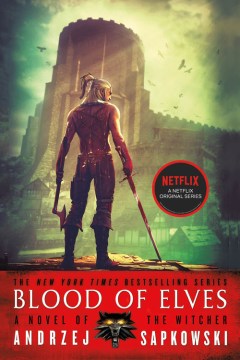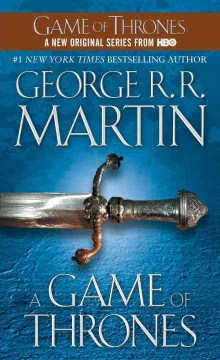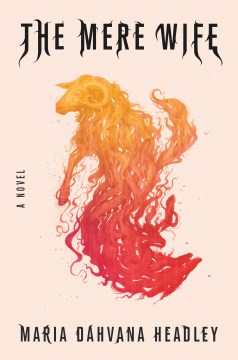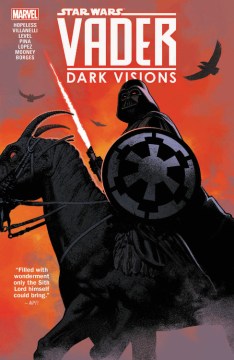
“The Lady of Shalott” by John William Waterhouse (1888) — A commonly used painting from the late 19th-century depicting the medieval Lady of Shalott, Also the subject of 19th-century poet laureate Alfred, Lord Tennyson’s poem “The Lady of Shalott” and is, in itself, medievalism.
Many of the blog posts I have coming up will interact with the idea of medievalism and the medieval. Because not many people are familiar with what I mean when I talk about the medieval, I figured I could give a mini-lecture on some of the concepts I study and talk about, which will make some of my book reviews hopefully have some more context.
As many know, my background as a literary scholar is in European medieval literature, and King Arthur studies in particular. I focused my Master’s Degree research on the 15th-century work of Thomas Mallory called Le Morte d’Arthur (translated to The Death of Arthur), and in pursuing a Ph.D. program, I have been crafting my research proposals around the idea of “medievalism.” This is a fun concept. Let me explain it briefly, starting with dictionary.com’s definition:
medievalism [me*di*ae*val*ism], noun
- the spirit, practices, or methods of the Middle Ages
- devotion to or adoption of medieval ideals or practices
- a medieval belief, practice, or the like.
What does this mean more simply? Medievalism is an academic way to think and talk about how modern people interact with medieval things. As a culture, we have been fascinated with the idea of the medieval past since the medieval revival in Queen Victoria’s time, back in the 19th century. My favorite undergrad professor and current mentor said something in my first King Arthur class that I always think about: “Anything with a knight in it is medieval,” or something like that anyway; my memory is terrible for exact quotations. This is absolutely true, and I can’t help but find all the moments in books, TV, movies, music, etc., that interact with the medieval in some way.
Before learning anything else, I would guess that you have some images in your mind as I speak about these concepts—perhaps chivalric knights in shining armor, ladies in towers with flowing dresses, swordfights, masculinity on display and marvelous feats, right? If I say King Arthur, you might think about Guinevere, Merlin, Lancelot, love & betrayal or maybe Monty Python and the Holy Grail, which remains my favorite piece of cultural medievalism.
The medieval world covered a very long time, from roughly the mid 5th century (the 400s Common Era) to about Shakespeare’s time in the late 17th/early 16th century (the English Renaissance began around that time and the dates aren’t so much fixed points as suggestions). It’s hard to think about that much time, so cultural memory tends to lump all 1200ish years as one concept. That’s ok! I find it fascinating the ways in which medieval concepts are remembered, and it makes up a large bulk of my research.
Every time I read a book, watch a movie, see a show or hear a song with knights and ladies, kings and courts, I recognize the medieval, and I pay more attention. Modern fantasy, especially the branches inspired by J.R.R. Tolkien’s Lord of the Rings, almost always qualifies as medievalism in some way. But fantasy in no way owns the monopoly on medievalism. Here are some popular examples I love:
The Witcher by Andrzej Sapkowski
The world of The Witcher is multi-media: first, it was a book series consisting of eight books (five novels and three short story collections). I wrote a review recently for Blood of Elves, which is the first novel in the series. There are also three video games in the world of The Witcher that sometimes interact with the book’s storylines and sometimes not. And finally, there is an excellent Netflix show with two seasons, based on the video games more than the books. (Don’t have Netflix? Check out a Roku on the 2nd floor to access Netflix, HBO Now, Disney+ and more.)
What makes The Witcher medieval? Magic and the fantastic, to start with. While not every bit of magic makes a piece reminiscent of the medieval world, the casual way in which magic permeates the entirety of life and the world is medieval. Medieval people, in general, believed in magic. There is a more complicated version to tell, of course, but in general, the inclusion of fairy and magic in medieval literature was an expected piece of story-telling. Witchers are supernaturally enhanced men who protect the weak, just like knights. The “Law of Surprise” plot point is not medieval in itself, but the emphasis on honor, keeping one’s word, and the idea of being born into destiny, definitely is. The final book in the series, The Lady of the Lake, even transports a character to the realm of King Arthur.
A Song of Ice and Fire Series / Game of Thrones by George R. R. Martin
While I certainly still have some strong feelings about the ending of HBO’s Game of Thrones television series, the books and show itself are definitely strong examples of medievalism. The political intrigue across the series adds depth to king-making, and the constant threat of violence dealt by sword-carrying knights lingers over all the characters. If you’ve never read the books, the first in the series is A Game of Thrones, hence the TV show’s title.
Fair warning, though: much like Chaucer’s incomplete Canterbury Tales, Martin’s most recent addition to the series was released in 2012. Book six, provisionally titled Winds of Winter, has yet to be published. Initially meant to release in April of 2021, the current rumor places publication in November of this year. But I wouldn’t cross your fingers. My theory is Martin will never release the final two books in the Song of Ice and Fire series, as he is publishing books from his other works nearly annually instead.
The Mere Wife by Maria Dahvana Headley
First and foremost, The Mere Wife is a feminist and contemporary retelling of the Old English Beowulf. Old English, a heavily Germanic predecessor to Modern English, is very different and difficult to read. Headley, in offering a retelling, is doing more than simply translating a medieval text. She changes the characters to reflect modern concepts, such as the conflict in the Middle East, while maintaining a deep connection to the medieval source material.
Headley also wrote a modern English slang-heavy translation of Beowulf that I absolutely recommend that begins “Bro! Tell me we still know how to talk about kings” and absolutely captures the beginning of the Old English story-telling process.
Star Wars
There is so much I could say about the world of Star Wars and medievalism. From Luke Skywalker’s hero journey and the concept of “the fair unknown” (which basically indicates a character who is really good and probably attractive, realizes they are inherently good at hero skills, becomes the hero and saves the day) to the means by which Jon Favreau introduces medieval masculinity to The Book of Boba Fett, Star Wars doesn’t really stop with the medieval connections. It’s also one of my favorite things in the world, and I’m not sure how to talk about the different aspects of it. I have currently submitted an essay proposal that is pending, so I won’t veer into my Book of Boba Fett review until I know what’s going on with that paper, but for now, enjoy the cover of an excellent graphic novel run called Vader: Dark Visions.
Video Games
There are so many video games that reflect casual medievalism. My favorite and current obsession is Skyrim, the fifth installment in the Elder Scrolls series. Skyrim‘s primary hero, your playable character, is the legendary Dragonborn, a hero born with a mystical ability to speak the magic language of dragons, who were thought to have died out generations ago. Magic, heroes, fighting bandits to protect the weak, it’s all very knightly. Games like Assassin’s Creed, Dragon Age, Legend of Zelda and even World of Warcraft all handle medieval elements as part of their world-building.
There are so many books, shows, movies, games and even songs/bands/albums that interact with the idea of the medieval past. Do you have a favorite that comes to mind? I’d love to hear about it, if so!




